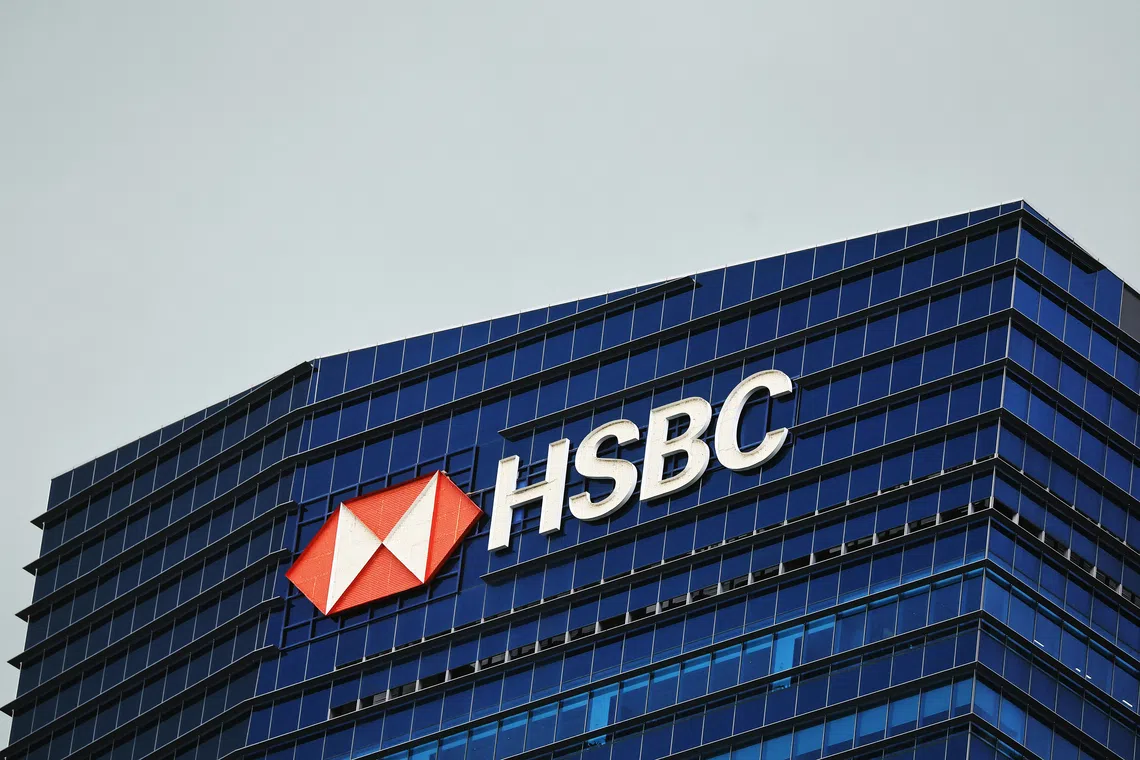HSBC raises income requirement for new credit card applications in S’pore to $65,000, from $30,000
Sign up now: Get ST's newsletters delivered to your inbox

A spokesperson for HSBC said the move to raise the income requirement aligns with the bank’s focus on serving more affluent customers.
ST PHOTO: KELVIN CHNG
- HSBC is raising the minimum annual income for new credit card applicants to $65,000 from 1st Oct to focus on more affluent clients.
- Existing HSBC customers with total balances of $50,000+ still only need $30,000 income. Other banks like DBS, UOB, and Citi remain at $30,000.
- Experts note HSBC is becoming more selective and focusing on affluent clients globally, but middle-income consumers have alternatives with other banks.
AI generated
SINGAPORE – New HSBC credit card applicants now need a minimum annual income of $65,000, up from $30,000 – a move that aligns with the bank’s focus on serving more affluent customers, a spokesperson said.
The Straits Times understands that the three local banks DBS Bank, UOB and OCBC Bank, as well as the foreign banks Citi Singapore and Standard Chartered Singapore, are not raising the income criterion for their credit cards, which stays at $30,000.
HSBC, Citi and StanChart are among the foreign banks here with qualifying full bank licences, meaning they can offer a range of services similar to the three local banks.
Since Oct 1, new HSBC credit card applicants, including foreigners who are existing HSBC customers, need to earn at least $65,000 a year.
Existing HSBC customers who are Singapore residents will also be affected if they have less than $50,000 in total relationship balances when they apply for a new card.
Only Singapore residents with a total relationship balance of $50,000 or more are not subject to the higher income criterion for new credit card applications. They must earn at least $30,000 a year – no change from before.
Total relationship balance refers to the total value of deposits, investments and insurance that a customer has with HSBC. It is derived from the average monthly balance over the last three months.
The HSBC Premier Mastercard, which is exclusive for Premier or mass affluent customers, will apply the higher income criterion, as will the bank’s other credit cards.
Mr Michael Makdad, senior equity analyst at investment research firm Morningstar, said HSBC is becoming more selective globally in its retail business.
He said that the bank is aligning its approach in Singapore with what it is doing in other markets.
This shift will see HSBC focus more on growing its services to affluent clients and on the cross-border institutional business, he added.
Mr Makdad also noted that affluent clients today are often made up of mass market clients who became rich over the years. This means mass market clients today may become affluent in the future.
Thus, HSBC will not radically change what it is doing in Singapore, he said.
Mr Alfred Chia, chief executive of financial advisory firm SingCapital, noted that middle income consumers, or those earning between $30,000 and $65,000, will find it harder to qualify for the HSBC cards unless they have savings or investments with the bank.
“This could make entry-level cards less accessible, especially for younger professionals or first-jobbers,” he added.
These consumers can look for options with the other banks.
Most banks, including the three local banks, Citi and StanChart still have minimum income requirements at $30,000, while the premium or lifestyle credit cards have a higher income threshold of $120,000.
A spokesperson for Citi said any adjustment of income requirements will be made with consideration of market trends and the bank’s strategic priorities.
“At this point, Citi’s credit cards remain popular across all customer segments even as wages grow, and credit card delinquency rates are regularising to pre-Covid levels,” the spokesperson added.
A StanChart spokesperson noted that the bank will make any adjustments in line with its business strategy.
Mr Chia added that DBS, UOB and OCBC have widened access to consumers as they now allow retirees to use CPF Life payouts to fulfil the income criterion for credit card applications.
A credit card is, however, not a substitute for income or savings, he said.
“Consumers should not chase a card just for perks.”
They should choose cards that match their spending habits, manage repayment on time and keep total debt within their means, he noted.



